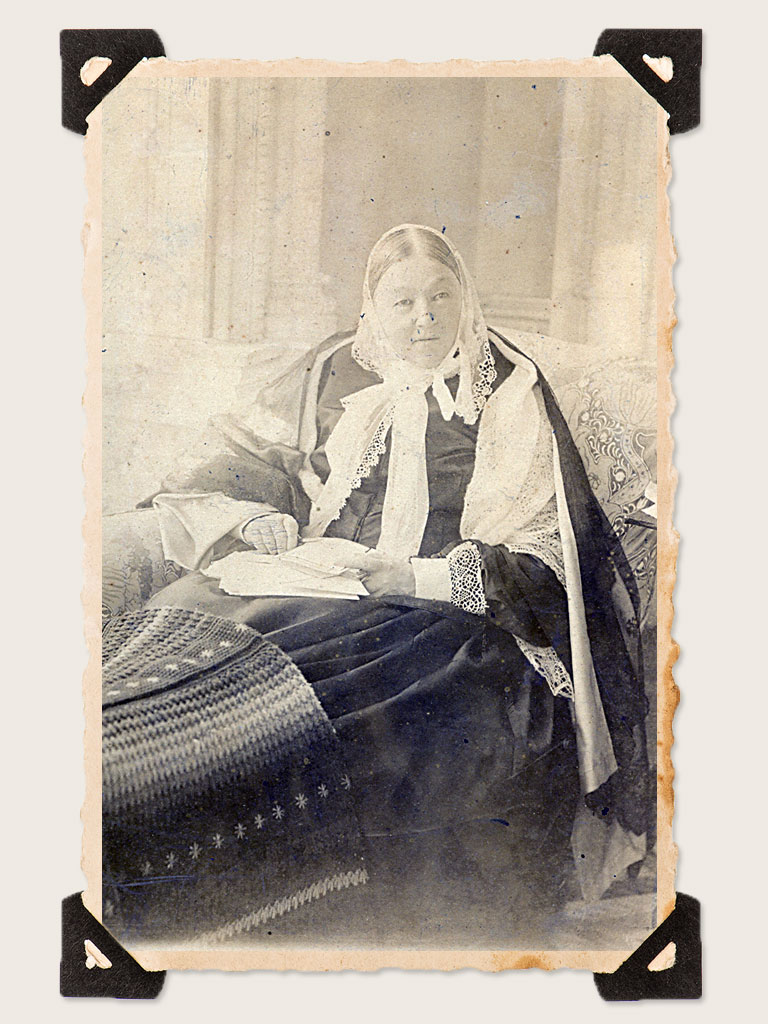Queen’s Nurses Magazine 1914
The Life of Florence Nightingale
The article was a review of The Life of Florence Nightingale by Sir Edward Cook, published London, 1913.
“Florence Nightingale”, says Sir Edward Cook, “was by no means a Plaster Saint. She was a woman of strong passions… not only a gentle angel of compassion… more of a logician than a sentimentalist… A passionate statistician…” and we learn from these pages that it was Miss Nightingale’s amazing grasp of facts, her power of foresight, which possessed in unusual degree, her persistence, untiring energy, her devotion to the one great ideal that dominated her long life, the advancement of sanitary reform, these allied to a keen sympathy with suffering and hatred of injustice and wrong, made her the power she was. From her quiet room Miss Nightingale carried on a ceaseless campaign for improved sanitary and social conditions for her beloved soldiers at home and in India; she educated Viceroys, and kept Ministers up to their duties, held ‘Cabinets’ and influenced Departments of State….
Miss Nightingale’s intellect was of a rare order; she was in fact many generations ahead of the times in which she lived; it goes without saying therefore that she believed firmly in the extension of political power to women.
“Miss Nightingale”, says her biographer, “who was in favour of Female Suffrage, could hardly have gained more influence by the possession of a vote. But then very few women and not many men have the opportunities, the industry, the mental grasp and the strength of will which in combination were the secret of the ‘Nightingale power.’…
The movement for extending district nursing was very near and dear to Miss Nightingale’s heart; she was “possessed of the idea of the district nurse as health missioner,” and we know there is yet far to travel before we come within measurable distance of her ideal…
There follows a description of the new monument to Florence Nightingale in Florence, Italy, which can be seen here.
___
The Florence Nightingale Oration
Miss Amy Hughes (General Superintendent of the Queen’s Institute) delivered the Nightingale Oration, on October 8th, [1914] in the Town Hall, Liverpool. Miss Hughes recalled the fact that it was just sixty years ago this month since Miss Nightingale started for the Crimea; she spoke of the immense amount of good that had sprung from the efforts of one woman working with a sense of vocation. Miss Nightingale inherited from her mother a talent for organisation, and from her father the spirit of speculative inquiry, and as a child she felt that she was destined for some special calling. She went out to the Crimea with a staff of 38, which was increased eventually to 125, whereas in the Boer War the British nurses on service numbered no fewer than 800. … From the Crimea Miss Nightingale came home imbued with the need for nursing reform, and Miss Hughes passed in review the various nursing movements in which she was interested, and in some of which she had the co-operation of Mr William Rathbone…
